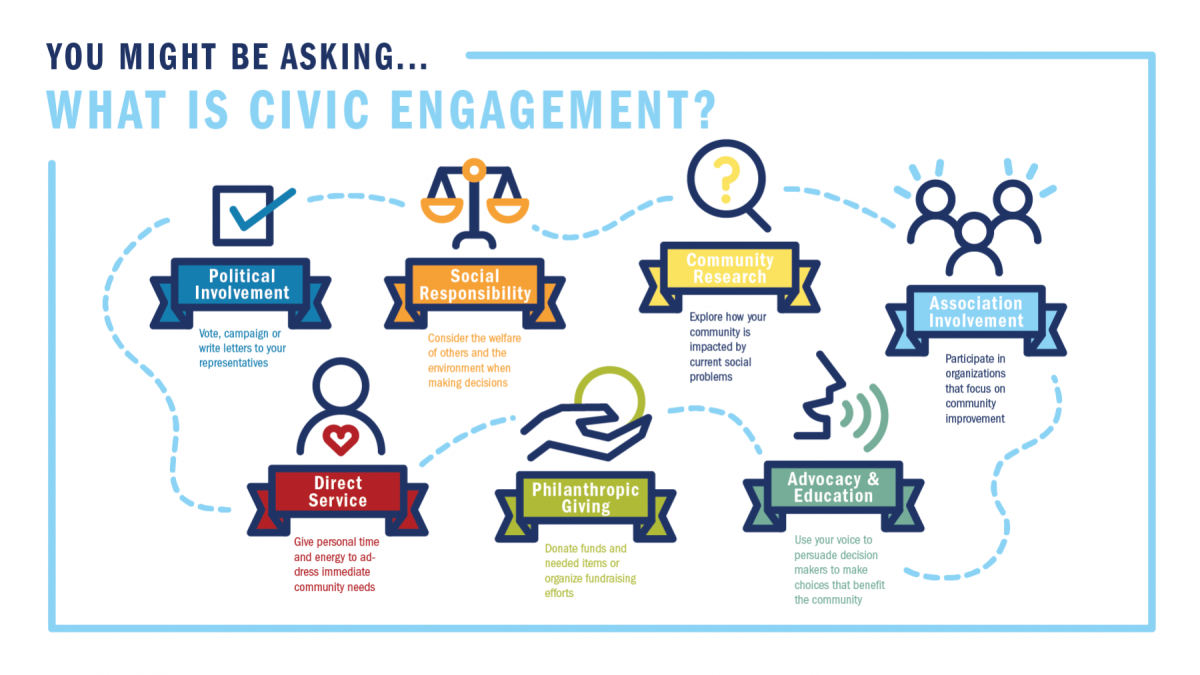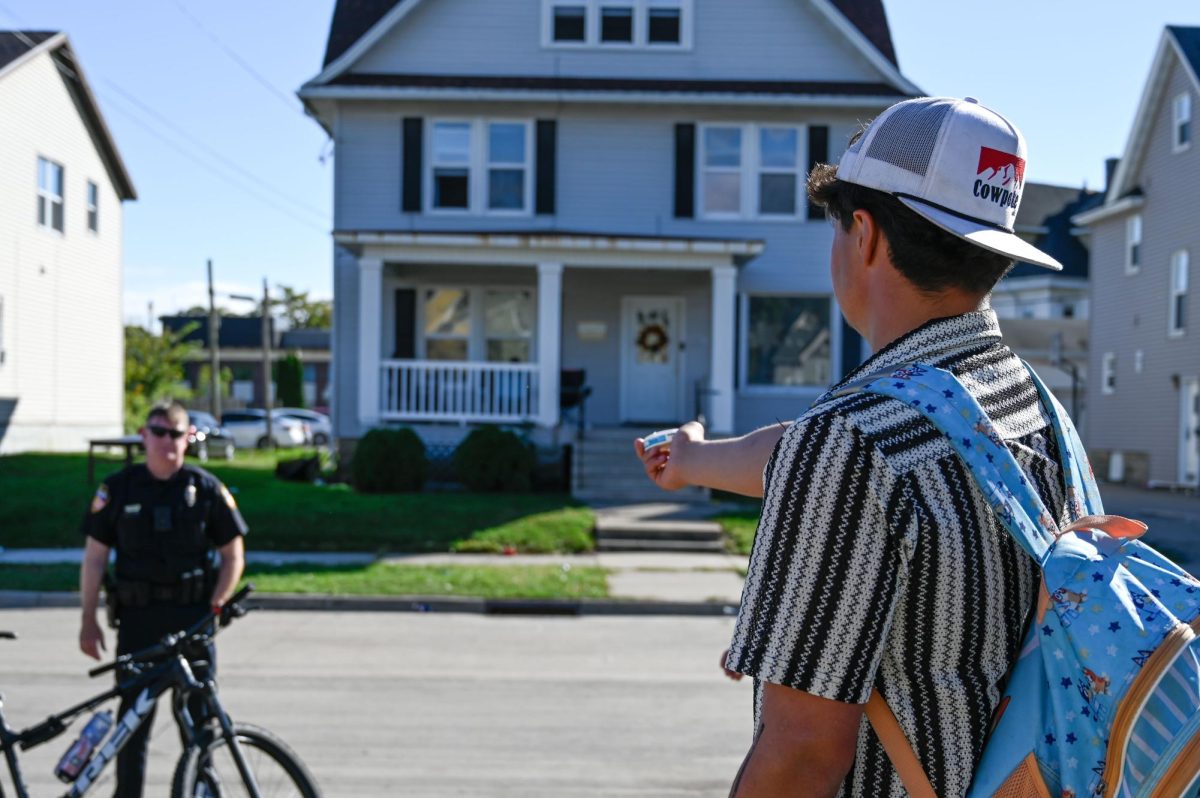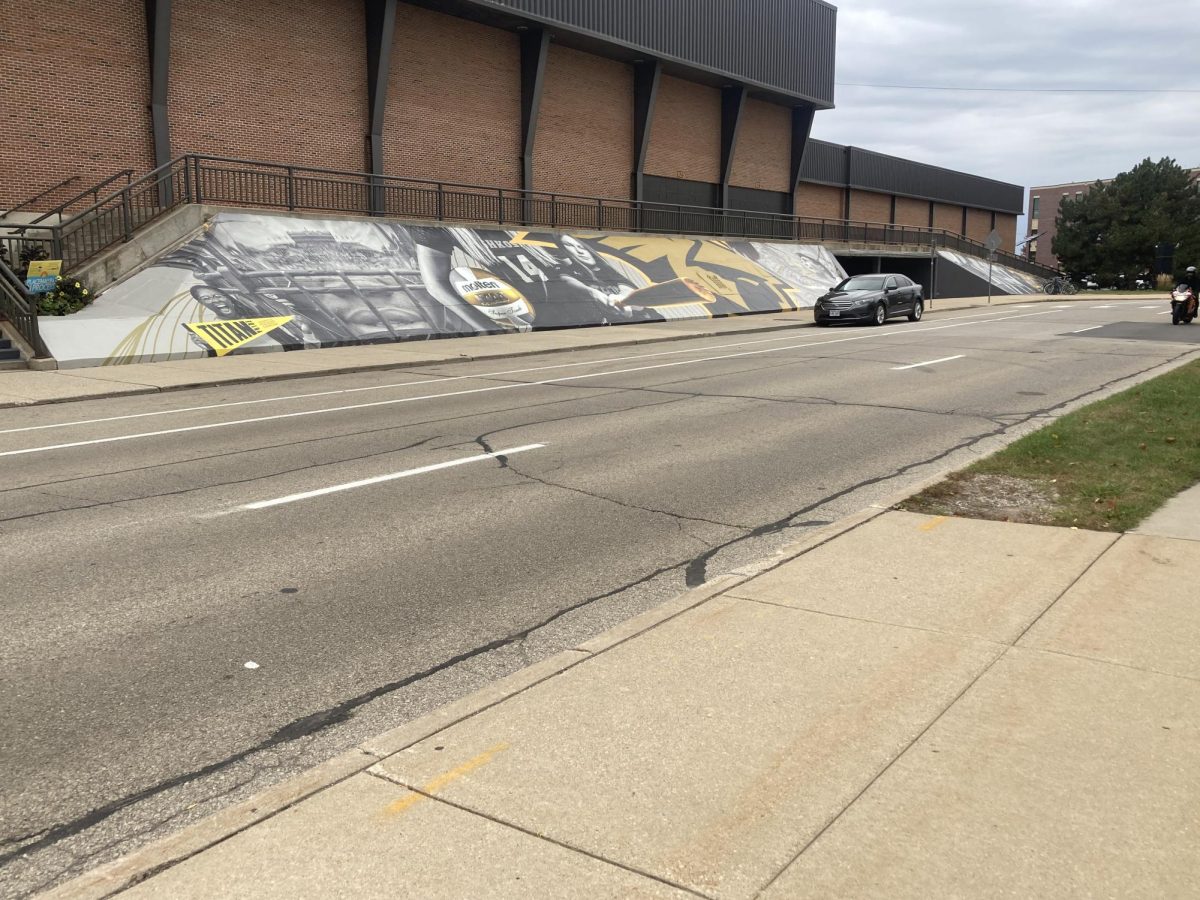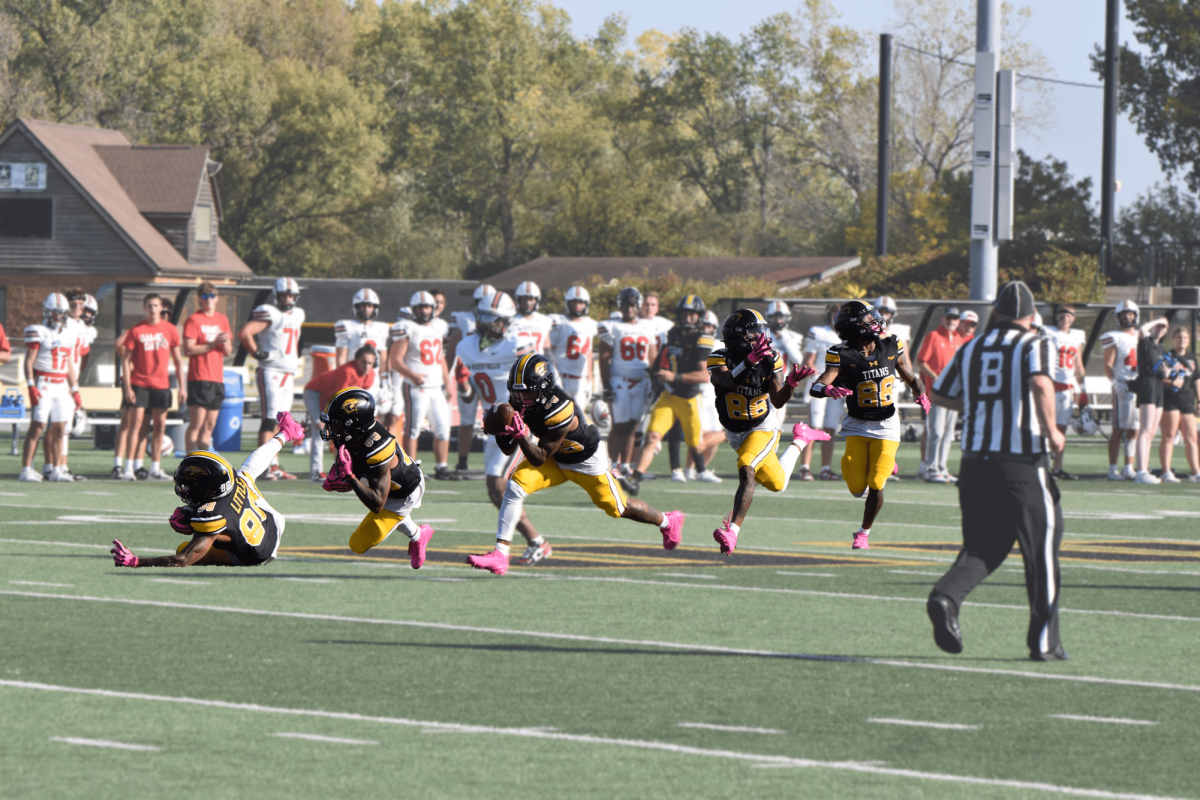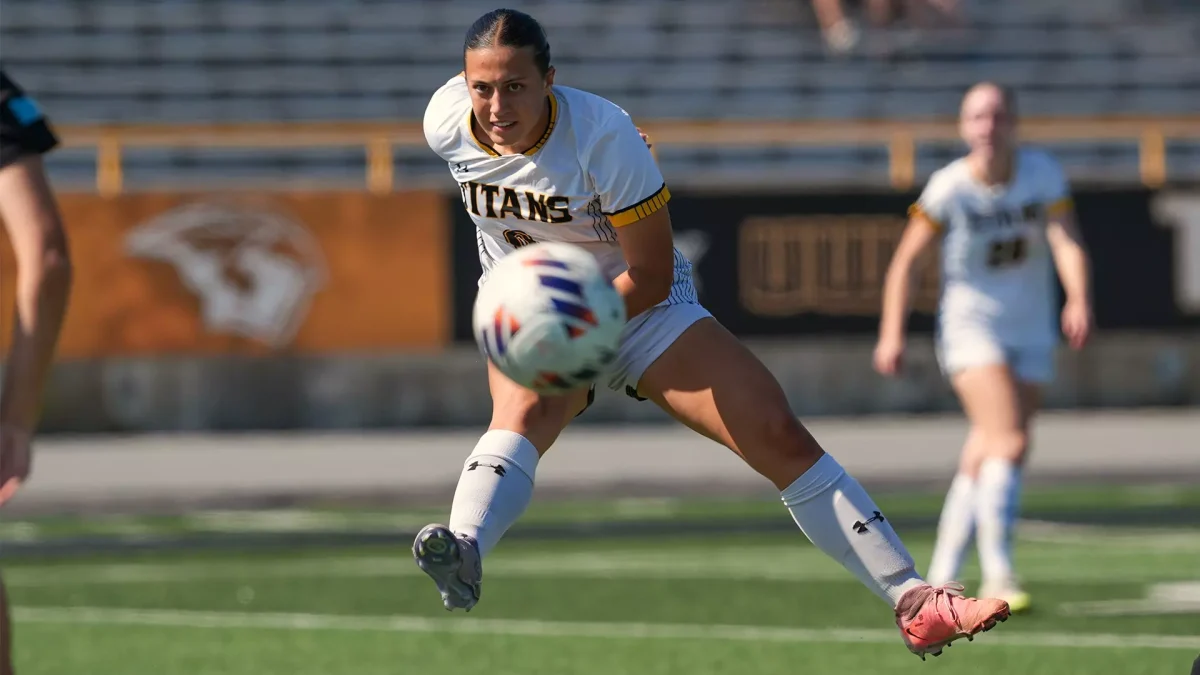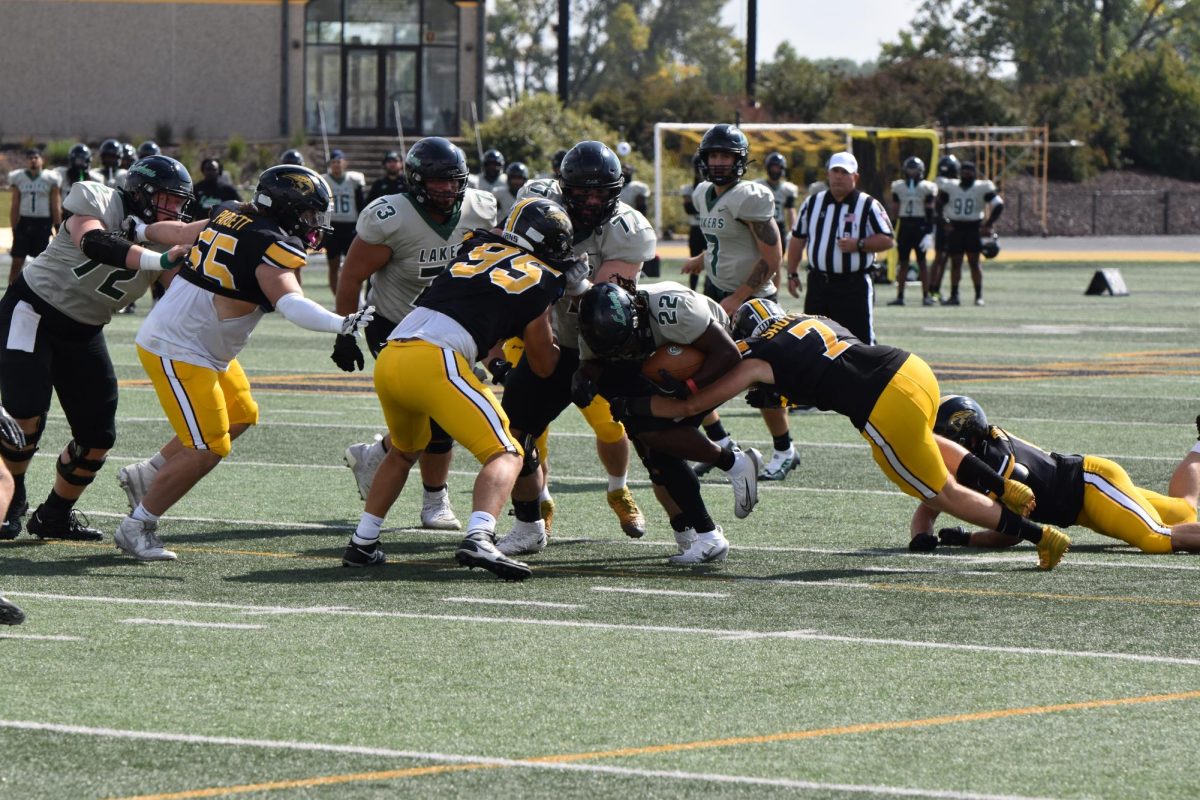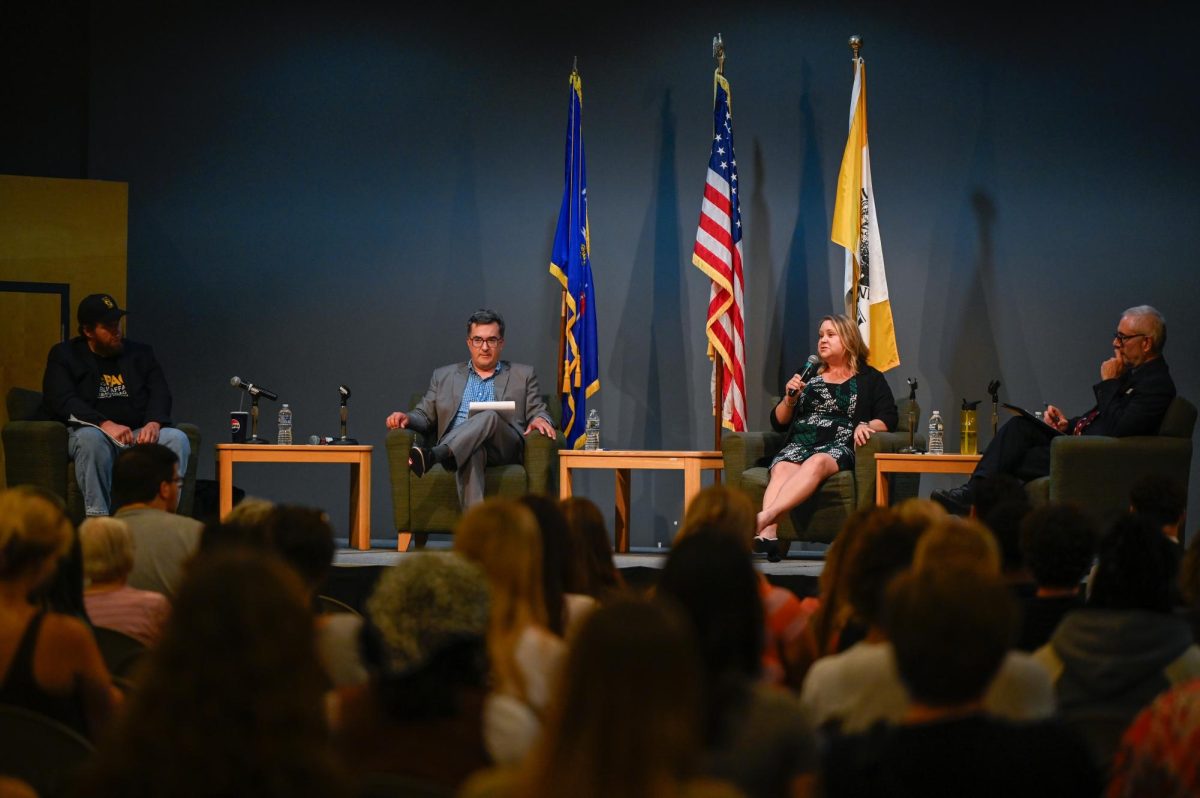After a 2022 survey found only 12% of students in the UW System said they were interested in having their views challenged, a panel discussed how students can engage in difficult conversations in Reeve Memorial Union last Wednesday.
“Universities are places where people should be challenged,” UW System President Jay Rothman said during the discussion. “Their views should be expressed and questioned.”
Along with Rothman, the panel included UW Oshkosh Associate Dean of Social Sciences Sara Hansen, UWO communications professor Tony Palmeri and Zach Greenburg from the Foundation for Individual Rights and Expression.
The panel was moderated by UWO Associate Professor of Public Administration Michael Ford.
The discussion was sparked by the UW System Freedom of Speech survey, which found that not only was a small portion of students interested in having their views challenged, but 70% of students avoid talking about controversial topics.
There are several reasons students are so hesitant to engage in difficult conversations about religion, abortion, LGBTQ issues and other similar topics, the panel said.
“Students reported that they were worried about what other students would think,” Palmeri said. “They thought they didn’t know enough about the topic, that what they said would be viewed as offensive…”
The UW Student Views on Freedom of Speech study found that students who are female, non-cisgender, non-heterosexual and/or had left-leaning views were more likely to think that expressing offensive views can cause harm to those they offend.
The panel said that poor examples from higher ups can also discourage students from participating in difficult discussions.
Palmeri said one example of this is Republican legislators threatening to cut funds unless Diversity Equity and Inclusion (DEI) programs without conversing with the UW System.
“That, to me, is bullying,” Palmeri said. “That sets a terrible example, regardless of your views on DEI. That is not a way to go about solving a major contentious issue in our society.”
Rothman said avoiding civic engagement is dangerous for the university and that students should address controversial topics.
“If we aren’t courageous enough to simply address these issues head-on, understanding that we need to listen and compromise, I don’t know where we end up,” Rothman said. “We deserve better than that and we have to do better.”
Engaging in controversial conversations benefits students’ education, Rothman said.
“You’re going to hear things you don’t like, you’re going to hear things you disagree with, but that’s all part of the educational process,” he said. “It is absolutely essential to the creation of knowledge, because if we don’t question the conventional wisdom, we’re not going to grow.”
Hansen said students can help universities become spaces for difficult conversations by engaging with professors.
“I think we (professors) need to be talking more with all of you about what you are thinking and hearing,” she said. “We’re telling you right now the importance of free speech and how we are trying as professors to have that in the classroom.”
Palmeri urges students interested in getting involved in civic engagement to start small.
“I always tell students to start at the most local possible level,” he said. “When was the last time you asked your roommate, or your parent or a co-worker what they actually think about something? Start having some meaningful dialogues in your own inner circle; that’s where it all starts.”
Palmeri said he urges students to make this first step by engaging with professors, which can intimidate many students.
“This semester, pledge to visit your professors at least once,” he said. “If you can bring down that wall between you and your instructors, that goes a long, long way.”
The panelists said that while controversial topics can be awkward and difficult, they can benefit students’ education.
“If you’re not uncomfortable at some point in the university, you’re not learning,” Rothman said.


